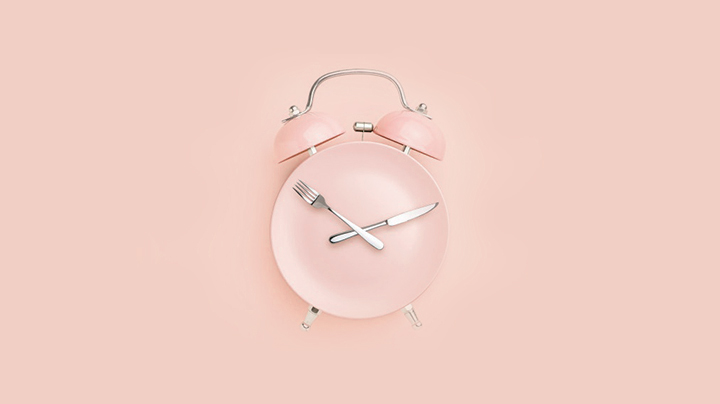5 Diet Myths You Need to Stop Believing
January 13, 2021
More results...

It seems that every couple of years or so, the health and dieting circuit comes up with a new buzzword to get people excited over the prospect of weight loss: South Beach, Atkins, pescetarian, paleo, and keto are just some of them. You may have heard of intermittent fasting (IF), and how your officemate/neighbor/friend-of-a-friend managed to drop 15 pounds in time for their wedding…or how they felt healthier and more alert as a result. Today, we’re here to interrogate: does intermittent fasting *actually* work? And what benefits await you other than plain weight loss?
First off, IF is a weight loss approach in which all eating is restricted to a certain window of the day. Depending on your experience level, this window can be as short as six hours to as long as 10. During your non-window hours, you’re only allowed to drink water, and—here’s the best part—there are usually no dietary restrictions with regard to what you can eat during your feeding window. Of course, if you’re on a diet mindset in the first place, you’ll naturally want to veer away from obviously unhealthy foods, but many IF-ers get away with eating small bags of chips or sweets. As long as you stick to your window, you’re good!
In an interview with Philippine Tatler earlier this month, Dr. Vicki Belo mentioned that she recommends the diet and does it herself. “It creates little stress for your system, just enough to wake you up. If you’re always comfortable, lying down, doing nothing, as usual, everything gets sluggish. But if you stress your system out a little bit, your body wakes up and repairs,” she explained. Dr. Belo’s pretty hardcore—she does 16-18 hours of fasting a day! If you’re a beginner, try a longer feeding window so you don’t get too overwhelmed.
Monique Tello, MD, MPH explained it best in a Harvard Health article: “Between meals, as long as we don’t snack, our insulin levels will go down, and our fat cells can then release their stored sugar, to be used as energy. We lose weight if we let our insulin levels go down. The entire idea of IF is to allow the insulin levels to go down far enough and for long enough that we burn off our fat,” she said. Simpler than you thought, right?
Aside from varied feeding windows, intermittent fasting can vary in days and even meal frequency. There’s alternate-day fasting, which is pretty self-explanatory; there’s the 5:2 diet, in which you eat normally for 5 days but eat only 500-600 calories for 2; there’s the warrior diet, where you eat one large meal a day and only have small portions of fruits and vegetables the rest of the day…and many more.
Circadian biology professor Dr. Satchin Panda conducted a study in 2015, in which subjects ate during 10- to 12-hour windows over a 16-week period. The subjects reported “reduced body weight, reported being energetic, and improved sleep,” and these benefits “persisted for a year.” In a time where working from home can make you feel lethargic and disrupt your sleep patterns, you just might find that IF works for you.
We strongly advise that you speak with your doctor before embarking on any new diet, as you may have conditions that aren’t compatible with the eating restrictions IF demands. But science has established that IF can do good things for your body, as long as you stick to the schedule!
So it looks like you no longer have to restrict entire food groups, completely swear off junk food, or embark on unrealistic caloric restrictions any longer. IF might just be a great way for you to enjoy the food you love, without letting those results reflect on the scale. Just remember: no IF diet can outrun a truly bad diet. If you’re spending your eating window gorging on solely unhealthy food, then you may be doing more harm than good. Balance (and good habits) is key!